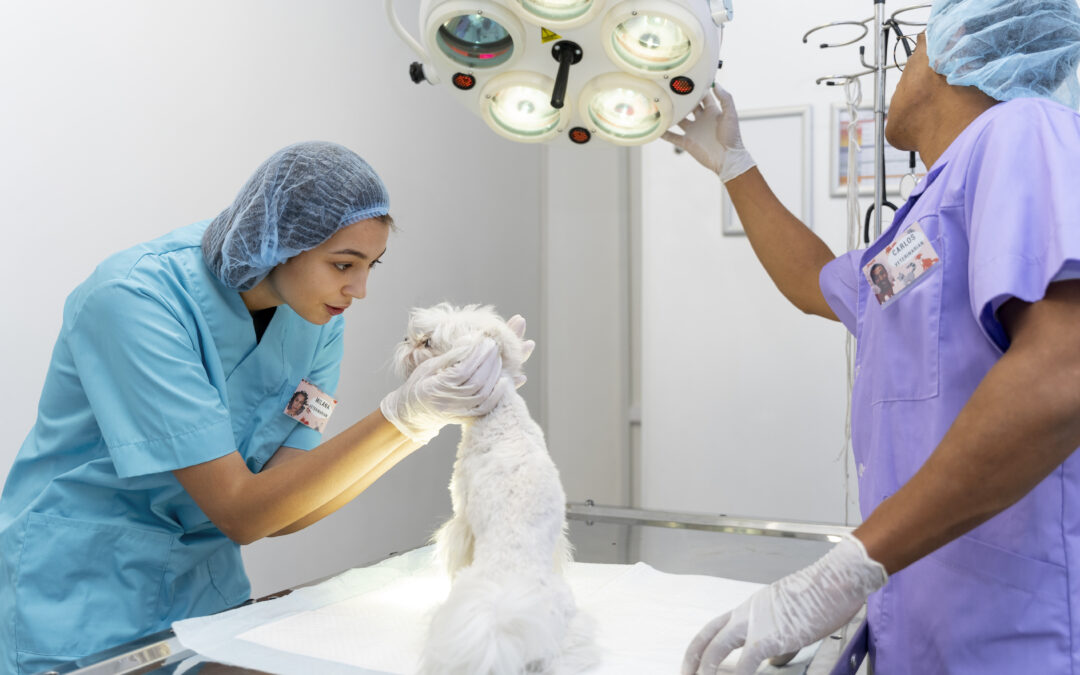
With a cooler than usual winter and the season officially shifting here in New England, pet owners must be mindful of the prominence of ticks this year. Ticks are tiny arachnids that may seem harmless, but they carry many diseases that can affect you and your pets if bitten by this tiny creature.
New England is a perfect breeding ground for ticks. With lush vegetation, dense forests, and a temperate climate (especially with our less than freezing cold winter), tick-borne illnesses are rampant in both animals and people. Tick season generally starts in early spring through late fall, with the peak season happening in the warmer months. However, we have had many reports of a strong start to tick season already due to the warmer winter.
The most common types of ticks found in New England include the black-legged tick (also known as the deer tick) and the American dog tick. Both species can transmit various diseases to pets, including Lyme disease, anaplasmosis, ehrlichiosis, and Rocky Mountain spotted fever.
Symptoms of Lyme disease in pets may include lethargy, lameness, joint pain, fever, and loss of appetite. Left untreated, Lyme disease can lead to more severe complications, such as kidney damage and neurological issues.
In addition to Lyme disease, other tick-borne illnesses can cause a range of symptoms in pets, from mild discomfort to life-threatening conditions. As responsible pet owners, it’s crucial to be proactive in protecting our furry friends from these potential dangers.
Our experts at Veterinary Urgent Care Center want to give you a few things you can do to manage the health and safety of you and your pet as you start to go outside this season.
Stay on top of your tick prevention products: Speak with your veterinarian about tick prevention products suitable for your pet. Topical treatments, oral medications, and tick collars are among the options available to help repel and kill ticks.
Make sure you perform regular tick checks: Get into the habit of thoroughly checking your pet for ticks after outdoor adventures, particularly in areas with dense vegetation or wooded areas. Pay close attention to your pet’s ears, between toes, under legs, and around the neck. It only takes a few minutes but finding a tick and removing it quickly is imperative.
Try to maintain a tick-free environment: Keep your lawn well-maintained by mowing regularly and removing leaf litter and tall grass, which serve as hiding spots for ticks. Consider creating a tick-safe zone around your home by using gravel or wood chips as a barrier between wooded areas and your yard. When on walks, make sure your pet stays on leash on well-traveled footpaths. If your pet likes to roam, please perform a tick check ASAP.
Stay up to date on vaccinations: In regions where Lyme disease is prevalent, consider vaccinating your pet against the disease. Consult with your veterinarian to determine if the Lyme disease vaccine is appropriate for your pet based on their risk factors and lifestyle.
If you suspect that your pet has been bitten by a tick or if you notice any concerning symptoms, our teams are available for you seven days a week in Braintree, Plymouth, Easton, Saugus, Dedham and East Providence, RI! Visit veturgentcare.com to book online or view our hours before you walk-in!




